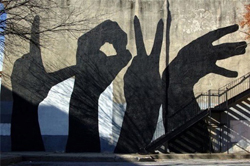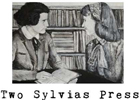

I offer the original forward to Phantom Son written in 2009 or thereabouts. This somewhat overly dramatic introduction to Phantom Son, which was then titled, A Color Coded Memoir, was also set aside for what is included between two covers and a glorious be-finned Pink Imperial. Thus, I offer an over the shoulder view, looking forward in reverse.
Forward in Reverse
The road back to that time will be forever overgrown with tangles of memory and blurry sensations. If seen at all, it would twist back on itself. The way there would become impenetrable just like the truth of what happened. Though truth itself was yet to emerge, it hovered around the next war, ready to spill over in great washes of blood, relief, and tears. (1964)
I wrote those sentences in an effort to record a major event in my life, to preserve the secret of it, and to remind myself that I had come through to the other side. I found these fading words preserved on narrow-lined notebook paper in my mother's copy of The Best Loved Poems of the American People. They are written in green ink in obedient Palmer Method style, probably with the old Parker fountain pen I'd dragged around since the 1950s. When I wrote with such teenage drama and prophecy, Viet Nam had blown up the revelry of the past destroying families with death notices and irretrievable sons. The Beatles called together a new society that would construct a stage upon which a paradigm shift would appear.
The Viet Nam war was the first televised, including body bags and battlefield casualty pictures, and the only life-changing thing since the assassination of President Kennedy. I was paying attention. Boys my age (19), whom I didn't know, were proposing to me in beer bars in Denver where you could buy 3.2 beer at eighteen. For a brief time, marriage (to anyone) would earn a deferment from active duty. Speaking of war, when I got to my college dorm in Colorado, I met a girl whose father the three-star general and aide to General Westmoreland, the boss of the war. She came to Colorado from Saigon, where she'd lived in an American compound, and impressed us with her stories of servants and wild adventures. She called herself a military brat with a free spirit. She, like me wasn't a virgin, and was still in love with her high school boyfriend. We thought we were in a minority but no one else was talking. Virginity and sex were a closely held shameful secret. The good girl/bad girl thing was a deeply held archaic belief. Gloria Steinem hadn't yet appeared to rescue us from that level of ignorance.
She inspired me to embrace my free-spirithood, as I'd been too long in the shackles of adolescence and parental repression. Unlike my friend, beneath my emerging identity, I was guarding a big secret and the attendant shame and fear of discovery. As a freshman who should have been a sophomore, I embraced all my relative freedom, considering the Sisters of Loretto kept us in the dorm on weeknights, back in the dorm at midnight on Fridays and Saturdays, and forbidden to wear slacks or godforbid, blue jeans, anywhere on campus. I didn't own a pair of blue jeans until 1972 when I meet my husband, who was enjoying his incarnation as a hippie bookseller.
I was enjoying a reincarnation of sorts in the fall of 1964. Everything was a lark and a celebration of what I perceived as true freedom albeit with bumpers provided by the nuns, my parents, and my aunt who lived across town. My emerging wings weren't flight worthy, but I would test them anyway. I was breathing the sweet air of survival. Since everyone had the same restrictions I did, and I had experienced what absence of freedom did to my soul, I believed that life was finally and forever perfect.
That was then, but this story is about now. It's a fantasy really, unlikely to happen today, but stark reality in the 1960s. I was just out of the vortex my life became between May 1963 and February 1964. Nine months of a fiery ride, defined by overgrown tangles of pain and loss, joy and discovery. Then, I was told to forget.
This is a timeless story told in the languages of loss and discovery. I am grateful for that, for all the women who have summoned the strength and conviction to come forth and speak about their lost children, their lost motherhood. For those who don't, can't, or won't, you're one of us and we are here to show you the way if you need a guide.
Ours was a collective of brave women forced or choosing compliance to pay a price set by some unwritten code. It seems ridiculous now and worthy of a display in a museum. No one would believe it except us.
This is a trip back in time, as romance reverses, and then rights itself, proving it will never be lost.


